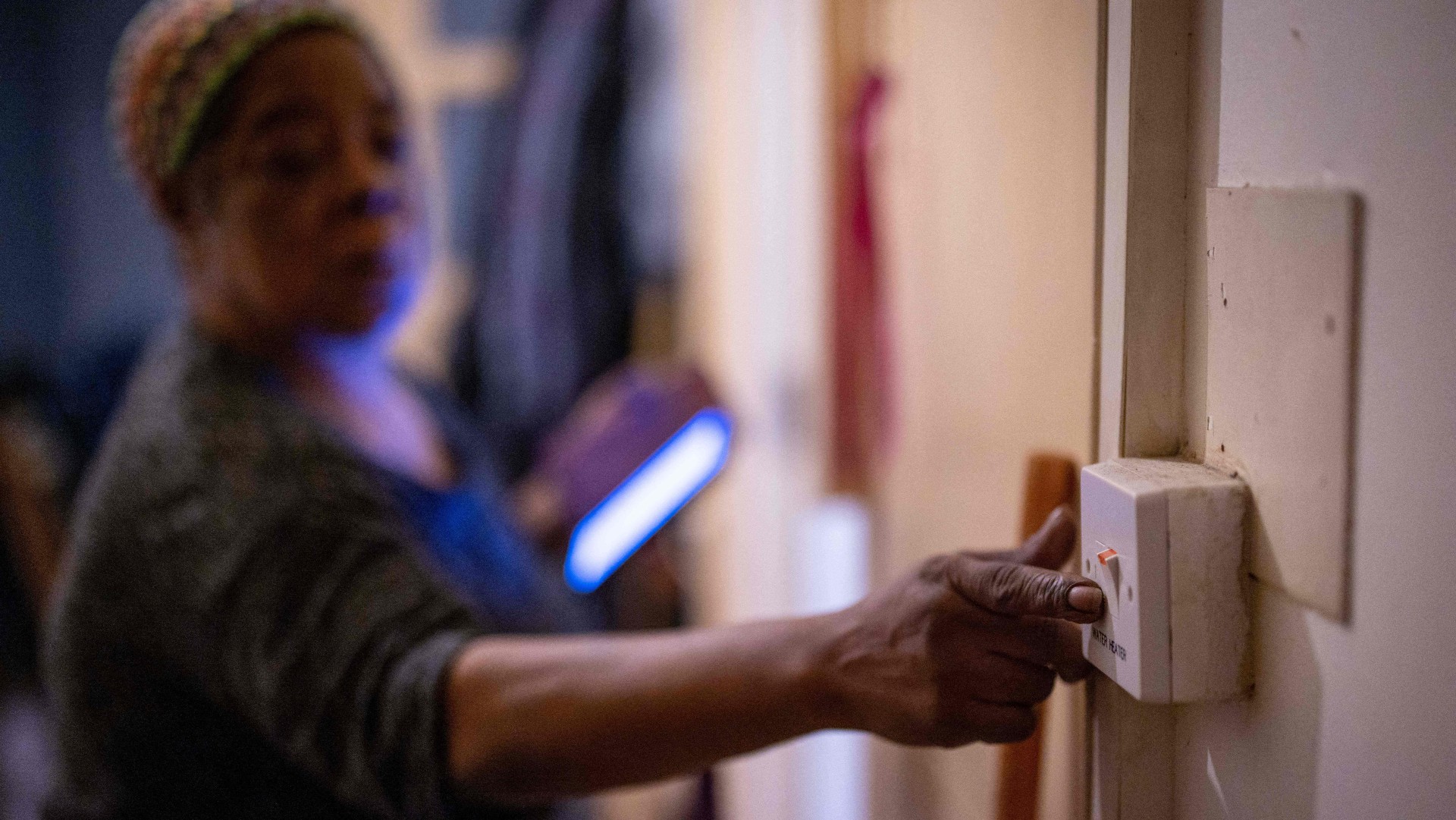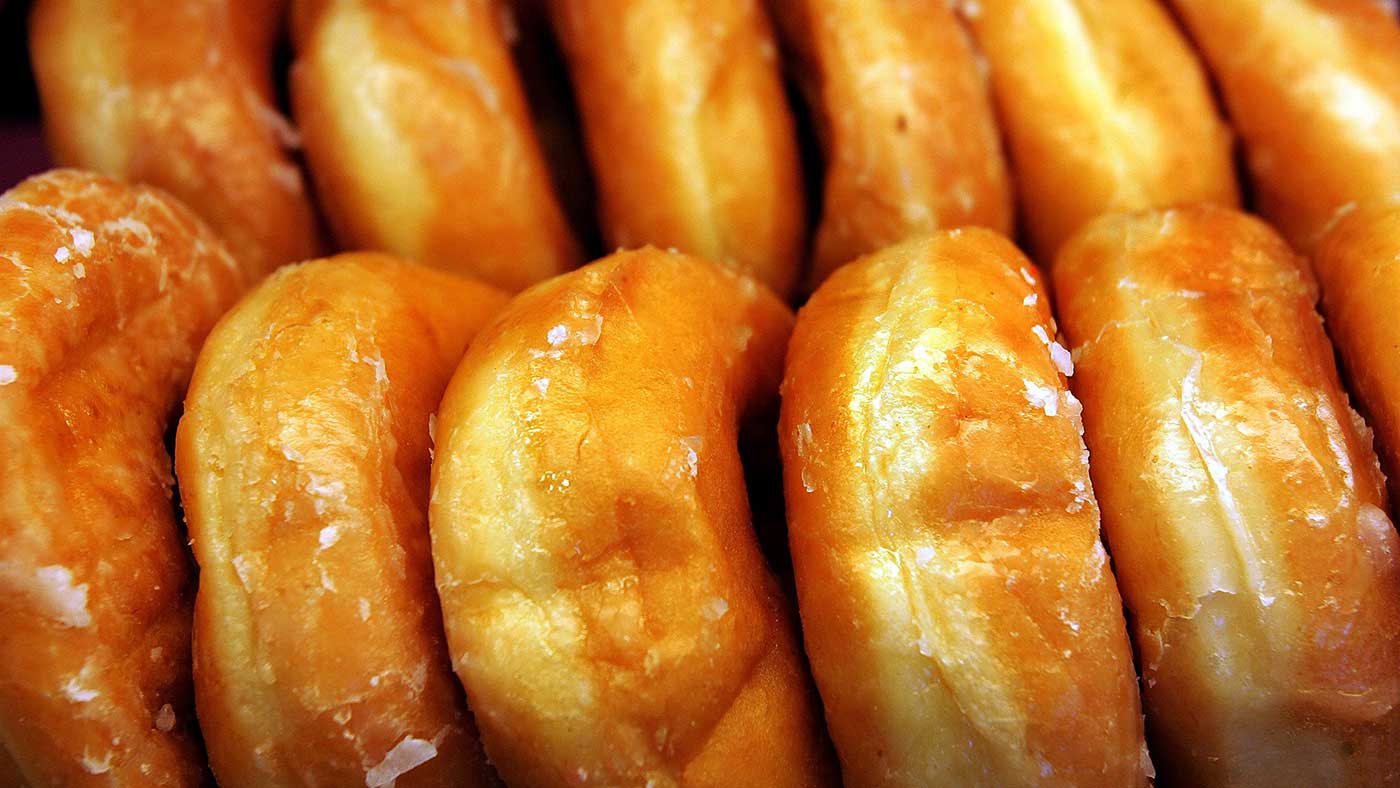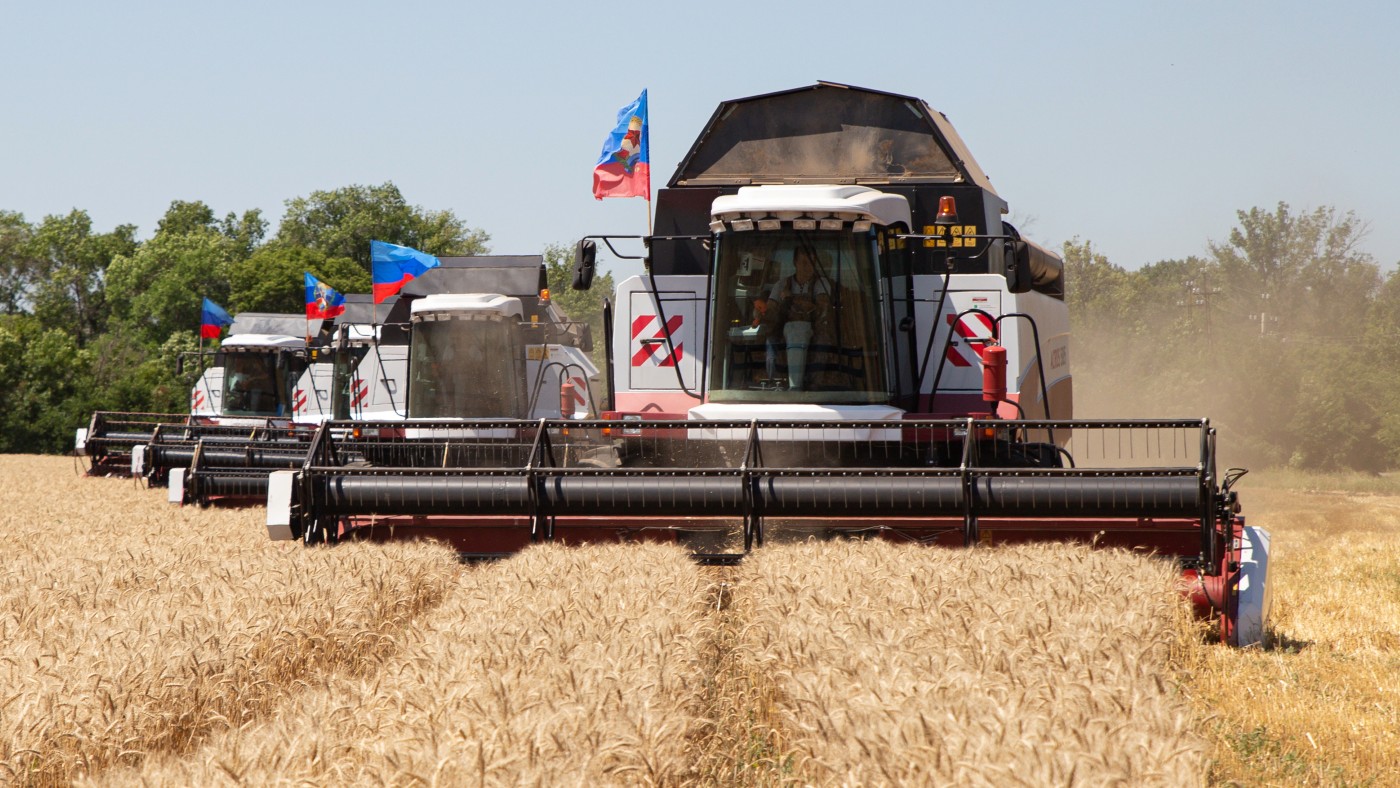Soaring inflation: the cost of living crunch
Britain’s economic prospects were dire enough before Putin’s war – ‘now they are desperate’

A free daily email with the biggest news stories of the day – and the best features from TheWeek.com
You are now subscribed
Your newsletter sign-up was successful
Britain’s economic prospects were dire enough before “Putin’s murderous war”, said Will Hutton in The Observer – with rising infation, rocketing energy bills and new taxes to pay for Covid measures. “Now they are desperate.” Russia is the world’s largest exporter of gas and wheat, and one of the largest exporters of oil and sunfower oil. Ukraine is the world’s fifth largest exporter of wheat and the fourth largest of maize. Inevitably, the prices of all these commodities have “spiralled upwards”. Oil has already doubled over the year to $130 a barrel. Past oil hikes on this scale “have unfailingly triggered global recessions”. The cost of living will keep going up. Inflation is expected to top 9% by autumn. “Everything that might propel growth is being squeezed”: consumer spending, government spending, investment. “You have to go back 50 years” to the 1970s to see “every dial on the economic dashboard” flashing red in this way.
The effect on household costs will be drastic, said Rupert Harrison in the London Evening Standard. Two years ago, the average dual fuel energy bill was under £1,000 per year. The cheapest one-year x is now £4,000, and could easily go over £6,000. “These are incredible numbers”, on top of rising prices for “motoring, food and most other things you can think of”. Next week, Chancellor Rishi Sunak will give his spring statement mini-budget, said Robert Peston in The Spectator. It’s not clear that the Government “has quite yet grasped the scale of the economic challenge”. It has so far set aside £9bn to ease the pain of energy price rises; that represents a subsidy of just £350 per household. The current crisis is quite different from the impact of Covid, because that was temporary, whereas “the reconfiguration of the global economy forced by the invasion of Ukraine will be permanent”.
The danger is that Sunak will react with his usual brand of watered-down Thatcherism, said The Guardian. What he needs to do is protect household nances, particularly poorer families – with uprated benets, a raised minimum wage, and a windfall tax on oil companies to fund lower energy bills. The trouble is that increased government spending “is one of the main ways to fuel inflation”, said Robert Colvile in The Sunday Times. “That’s what happened in the 1970s.” He’d do far better to scrap next month’s planned national insurance rise, which will see taxpayers forking out an extra £12bn. Whatever he does, Sunak faces “an awful choice between compassion and prudence”. Short-term pain for households is better than “galloping inflation”.
The Week
Escape your echo chamber. Get the facts behind the news, plus analysis from multiple perspectives.

Sign up for The Week's Free Newsletters
From our morning news briefing to a weekly Good News Newsletter, get the best of The Week delivered directly to your inbox.
From our morning news briefing to a weekly Good News Newsletter, get the best of The Week delivered directly to your inbox.

Basket of goods: doughnuts and men’s suits are out
Changes to the basket of goods used by the Office for National Statistics to measure prices are always an interesting gauge of trends. This year, doughnuts, men’s suits, coal and atlases are out, noted Lora Jones on BBC Business – replaced by sports bras, meat-free sausages, antibacterial wipes and pet collars. With inflation at its highest in 30 years, “the ONS’s methodology has come under extra scrutiny”. As analyst Myron Jobson of Interactive Investor points out, “climbing sessions”, another new addition, are “unlikely to rank highly on the list of spending priorities among those struggling to make ends meet”.
“Forget number-crunching,” said Alistair Osborne in The Times. Fashion advice has long been “the key forte” of the ONS. “And once again, the wonks haven’t disappointed.” After 75 years, they’ve killed off men’s suits – reflecting a fall in sales from five million to two million a year over the past decade, according to Kantar, accelerated by “trackie-bottomed working from home”.
“The death of the doughnut is no great loss,” said Nils Pratley in The Guardian – apparently these days we’re feasting on multi-packs of cakes. “But it’s hard to believe the men’s suit will go without a fight “once working-from-home effects fade”. Think of its return to the basket as an “unofficial marker of the economy’s recovery to post-Covid normality”. I give it 18 months.

The rising cost of everyday foods
As the war in Ukraine has intensified, its knock-on effects have become more apparent, said The Guardian. One of them is the disruption to the supply of wheat: Russia and Ukraine are responsible for around a quarter of the world’s wheat. This could spell catastrophe for countries in the Middle East and North Africa, where most of the grain from “Europe’s breadbasket” goes: Lebanon, for instance, imports half its wheat from Ukraine, and rationing is now being put in place there.
A free daily email with the biggest news stories of the day – and the best features from TheWeek.com
The UK grows 88% of its wheat; but disruption to trade (Ukraine has banned the export of wheat, maize, oats and other foods), added to spiralling energy costs, are having a serious impact on food prices here too. Shoppers can expect to pay more for everything from beef (fed on imported grain-based feeds) to tinned tomatoes (which will face higher transport costs). Then there is the rising cost of nitrogen fertiliser: not only is much of it imported from Russia, its price is being sent sky high owing to the escalating cost of gas. This could mean lower yields for UK farmers and higher prices for their crops. Food inflation is only set to get worse.
-
 The ‘ravenous’ demand for Cornish minerals
The ‘ravenous’ demand for Cornish mineralsUnder the Radar Growing need for critical minerals to power tech has intensified ‘appetite’ for lithium, which could be a ‘huge boon’ for local economy
-
 Why are election experts taking Trump’s midterm threats seriously?
Why are election experts taking Trump’s midterm threats seriously?IN THE SPOTLIGHT As the president muses about polling place deployments and a centralized electoral system aimed at one-party control, lawmakers are taking this administration at its word
-
 ‘Restaurateurs have become millionaires’
‘Restaurateurs have become millionaires’Instant Opinion Opinion, comment and editorials of the day
-
 How corrupt is the UK?
How corrupt is the UK?The Explainer Decline in standards ‘risks becoming a defining feature of our political culture’ as Britain falls to lowest ever score on global index
-
 Democrats push for ICE accountability
Democrats push for ICE accountabilityFeature U.S. citizens shot and violently detained by immigration agents testify at Capitol Hill hearing
-
 Fulton County: A dress rehearsal for election theft?
Fulton County: A dress rehearsal for election theft?Feature Director of National Intelligence Tulsi Gabbard is Trump's de facto ‘voter fraud’ czar
-
 ‘Melania’: A film about nothing
‘Melania’: A film about nothingFeature Not telling all
-
 Greenland: The lasting damage of Trump’s tantrum
Greenland: The lasting damage of Trump’s tantrumFeature His desire for Greenland has seemingly faded away
-
 Minneapolis: The power of a boy’s photo
Minneapolis: The power of a boy’s photoFeature An image of Liam Conejo Ramos being detained lit up social media
-
 The price of forgiveness
The price of forgivenessFeature Trump’s unprecedented use of pardons has turned clemency into a big business.
-
 The ‘mad king’: has Trump finally lost it?
The ‘mad king’: has Trump finally lost it?Talking Point Rambling speeches, wind turbine obsession, and an ‘unhinged’ letter to Norway’s prime minister have caused concern whether the rest of his term is ‘sustainable’